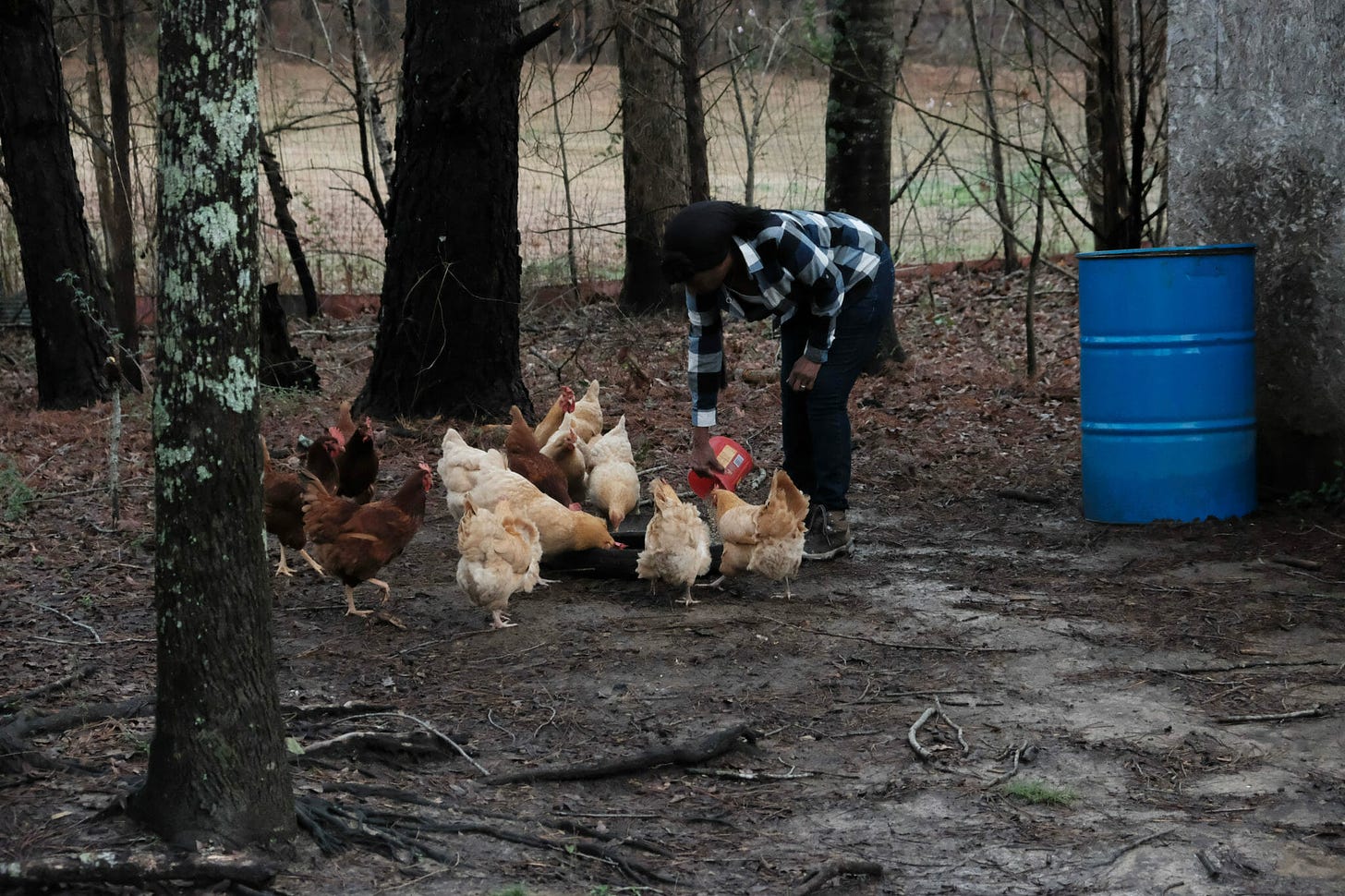Reclaiming Black farmland in Mississippi
Issue 191: After a century of declining numbers of Black farmers, a new fundraiser is one of many projects aimed at keeping land under Black ownership.

Hello! Welcome to Nosh Box, a lunchtime-ish food newsletter.
Read yesterday’s dispatch: Trader Joe's is finally changing that exoticizing branding
One hundred years ago, Black farmers made up about one in seven U.S. farm owners — nearly a million strong, they worked 41.1 million acres of land. Now, that number has dropped significantly. There are about 49,000 Black farmers in America today, around 1.4% of farm owners. And Black land holdings today total around 4.7 million acres, down 90% from 1920.
Why? Based on a conversation with Soul Fire Farm co-director Leah Penniman at Mother Jones, Tom Philpott writes:
Black farm ownership peaked in 1920. Around that time, the Ku Klux Klan and other groups led a “swift and severe backlash” to terrorize independent Black farmers, she added. These vigilante efforts went along with a set of US government policies—detailed in this great 2019 Atlantic article by Vann R. Newkirk II—that effectively expropriated Black-owned farmland, pushing it into the hands of white people. During the 20th century, the price of farmland rose by a factor of 52—making it yet another vehicle for wealth-building that African-Americans were systemically denied access to. The steady rise in land values, which has continued into the 21st century, makes it prohibitively expense for new farmers to break into agriculture, meaning that white dominance of farmland maintains plenty of momentum.
In that Atlantic article, The Great Land Robbery — which is absolutely a must-read; it’s long, so block out a chunk of time to read it — Newkirk digs deeper into the way racism on the part of the U.S. government agencies facilitated the expulsion of Black people from their land. He writes:
Major audits and investigations of the USDA have found that illegal pressures levied through its loan programs created massive transfers of wealth from black to white farmers, especially in the period just after the 1950s. In 1965, the United States Commission on Civil Rights uncovered blatant and dramatic racial differences in the level of federal investment in farmers. The commission found that in a sample of counties across the South, the [Farmers Home Administration] provided much larger loans for small and medium-size white-owned farms, relative to net worth, than it did for similarly sized black-owned farms—evidence that racial discrimination “has served to accelerate the displacement and impoverishment of the Negro farmer.”
Today, a variety of farmers and organizations are working to reclaim land for Black farmers, from the Black Farmer Fund to the National Black Food and Justice Alliance. In YES! Magazine, a publication devoted to solutions journalism, Leah Penniman highlights the work these groups and others are doing.
And in Mississippi, a Black farmer named Avery Jackson, whose grandparents were sharecroppers, has launched a project to purchase and restore a 20-acre plot of land that belonged to a Black community member who recently died. Through a fundraiser called “Black Land Matters: Help Save a 20 Acre MS Farm,” Jackson is aiming to raise $125,000. And since the fundraiser went live at the end of June, nearly $92,000 have been contributed.

Photo of Teresa Springs courtesy Avery Jackson via Modern Farmer
At Modern Farmer, Jackson explains the value of the initiative with a well-placed farm pun:
“It is a critical responsibility of Black people, particularly Black agrarians, to think seriously about the ways that we can compost the harm and the toxicity that has been planted in our community,” Jackson says. “This project is an act in itself for taking it on and committing to it for the long term future.”
The group’s long term goal is to turn the farm into an agriculture training centre that will be an inclusive space for Black trans, queer and non-binary growers. This will involve teaching organic, regenerative farming practices and other land-based skills to aspiring Black farmers.
Here’s a link to the fundraiser.
I’ll close with this video I may have linked before and I’ll probably link again — I think it’s practically required viewing for anyone interested in food justice. Leah Penniman talks with journalist Tamar Haspel in an incredibly broad conversation about how Black farmland was stolen from them and how a reparations program would be structured to address this injustice:



